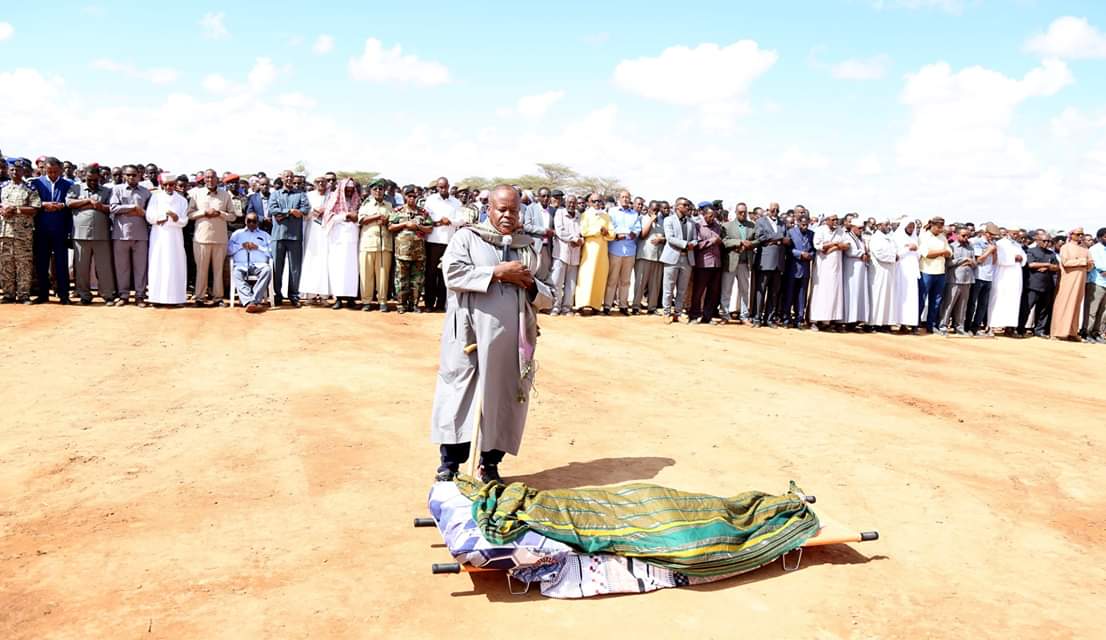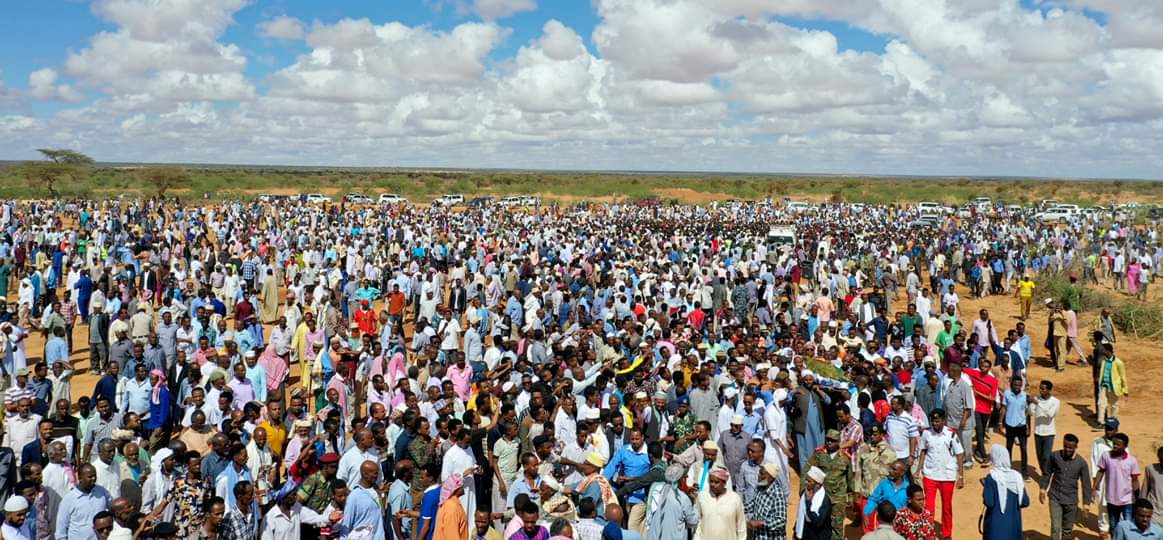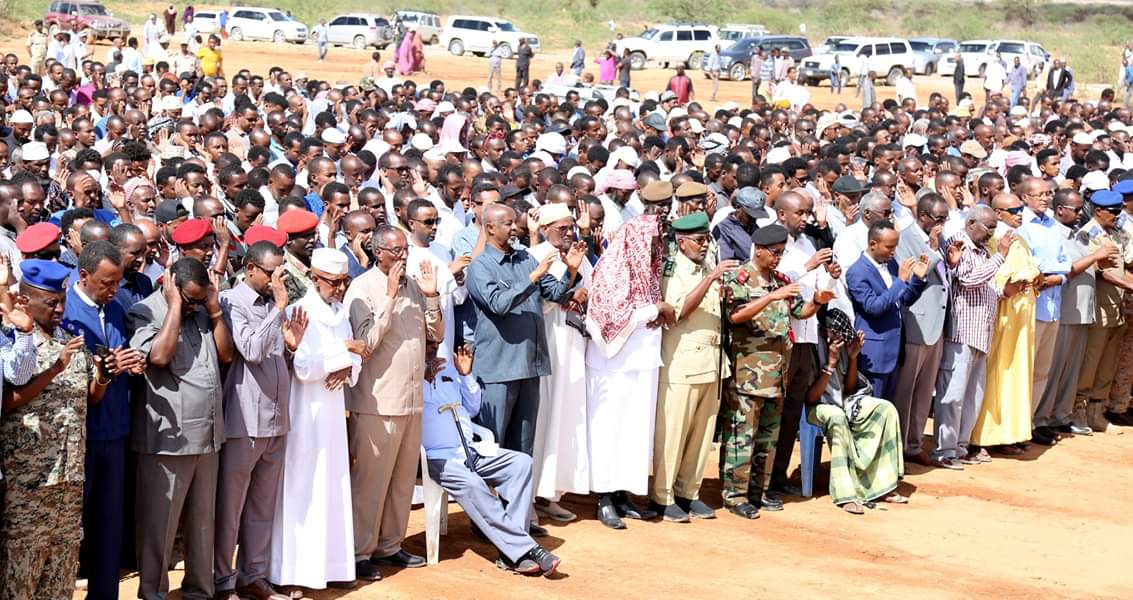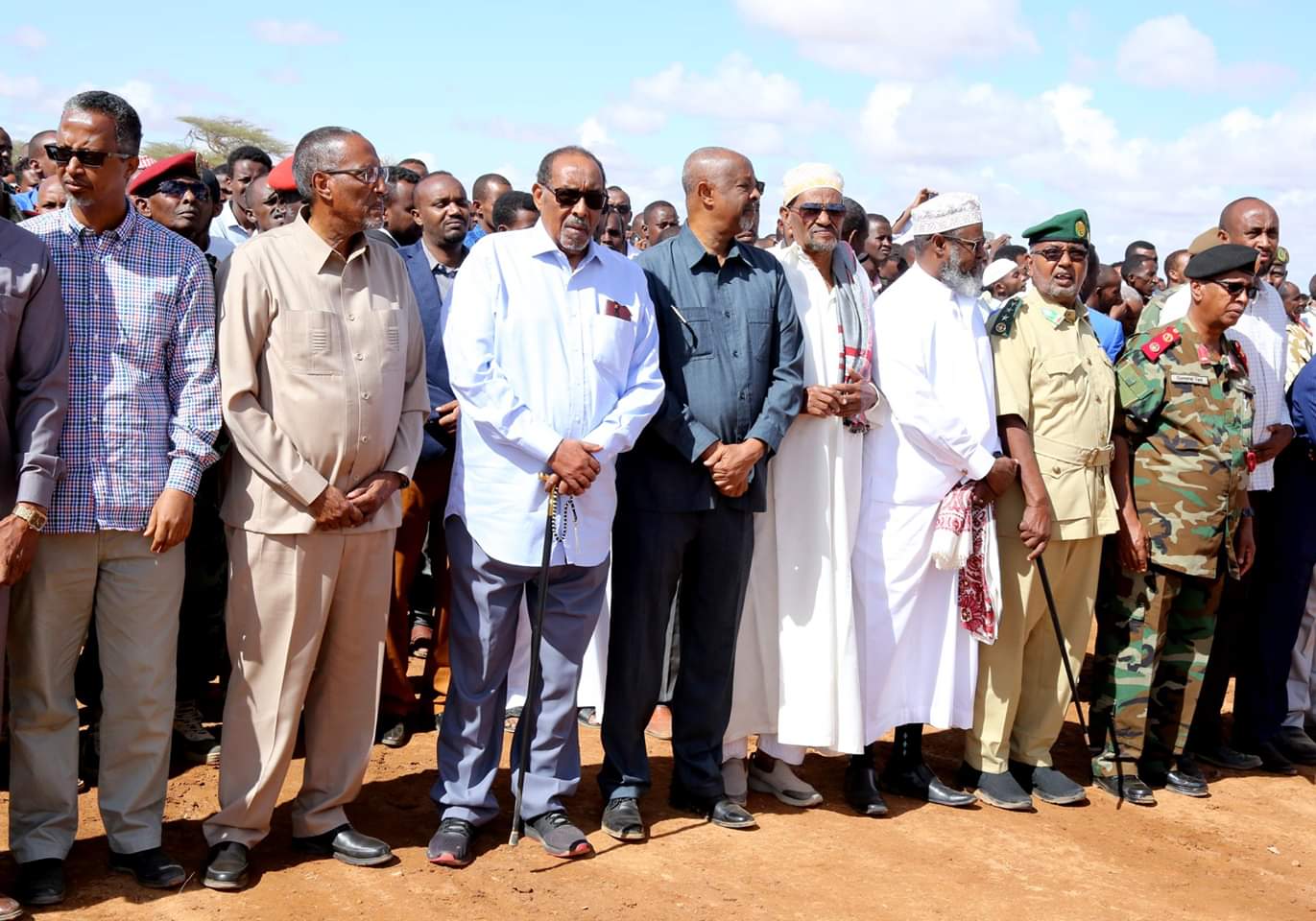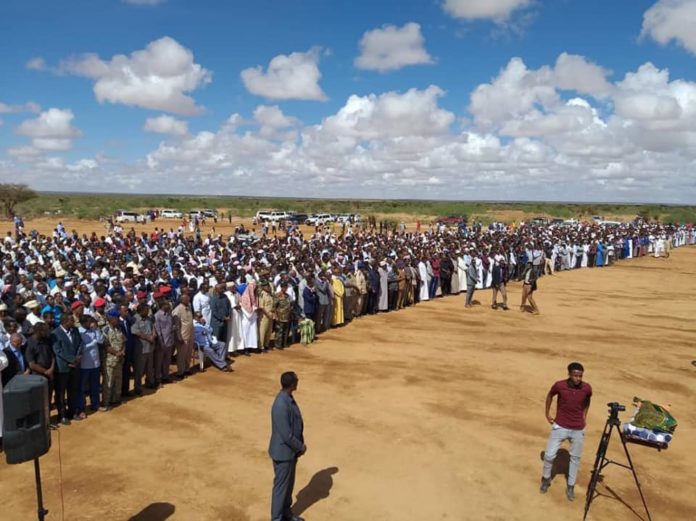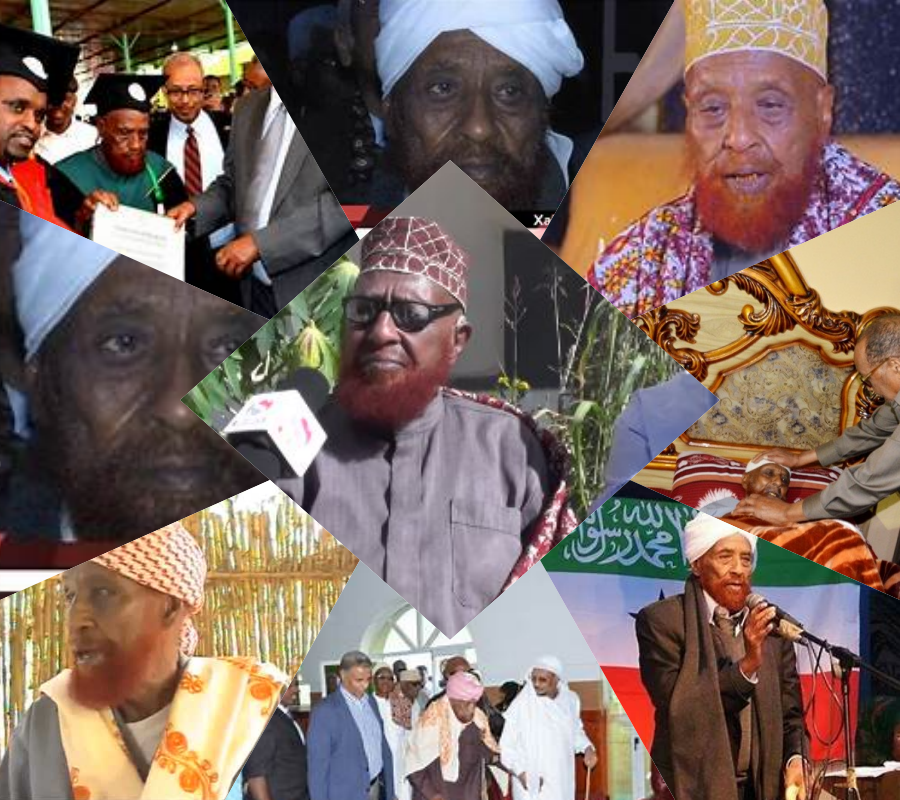His became a byname for peace and coexistence for all Somalis. His presence signified dialogue and reconciliation wherever he graced. His henna-coloured flowing red beard became a revered symbol of comfort and integrity. His appearance anywhere became a focal point of learning and inspiration. People involuntarily drew to him, related to him and became his for life. He never forgot a name. Nothing was ever too small for him. War and revenge never figured in his life.
He was Haji Abdikarim Hussein Yuusuf, a.k.a. Haji Abdi-Waraabe – elder, a long-standing member of the Somaliland Upper House of its bicameral parliament – the Guurti, a father figure whose name became synonymous with peace, and the Sultan of his large family since 1940. His coronation as Chief – and a subject of the British monarchy – preceded that of Queen Elizabeth II in 1952 some 12 years.
The Haji, born 1897, passed away on Friday, 10 May 2019, in Hargeisa.
The Haji’s epic qualities as a peacemaker started early. He was found to narrate how he and close relatives, all armed to the brim, decided to avenge the killing of his mother as a child.
When they reached the area where their scouts placed the killer, they told people they met that they were looking for stray camels. For trackers after stray livestock, especially, camels it was alright to be armed. Thus, they did not draw the suspicion of the settlers.
When night drew, they came to the hamlets of the man they were after to pretend that as travellers they wished t spend the night there with them – as was the custom. The plan, though, was that they kill him when all retired to their sleeping areas and slip away into the night.
Their host laid out mattresses and gave them milk and water. soon after, he slaughtered a big ram for them. As they were to finish the sumptuous meal, rain fell. He led them to one of the huts. as they were settling down in the small but neat place, the man saw that rain was dripping on the young Abdi-Waraabe’s head. The man unfurled his prayer mat – a much-coveted item in any household, especially in the countryside where such an item was a rarity at best of times – and held him above his head until the rain ceased.
When it came to the most opportune hour, his young, primed cousins told him to kill the man. To their surprise, he refused. They were flabbergasted in disbelief.
“How can I kill a man who did not allow a drop of rain fall on my head? I forgive him. The man deserves to live,” these words became standard quotes in reconciliation, mediation councils, and especially during tricky hostility mitigation hurdles.
During Saturday’s State Funeral, delegations from all the points of the compass in Somaliland attended: from Zeila, Erigavo, Las Anod, Badhan, Borama, Sallahley, Balligubadle, Burao, Ainaba, Berbera and every village, town and city. Delegations arrived from Djibouti, Somalia and Ethiopia to honour the Haji and bide him farewell in his final journey to meet his Maker.
Condolences poured in.
His Excellency the President of the Republic of Somaliland, Musa Bihi Abdi, likened him to a state pillar whose absence will be sorely felt by the nation.
“The Haji, on top of the reserved energy and time he put into the realization of a strong nation and in peace-building, has become a byname in the support of all efforts cementing the nation together which sometimes led to bridging potentially incendiary differences among top government organs, themselves,” the president said.
The President recalled the consistent honourable roles the Haji played not only in building Somaliland but also with innumerable other Somali and Somaliland administrations back to the time of independence and beyond it until the present day.
Haji Abdi-Waraabe always promoted dialogue and a rift-less society directly contributing – one way or the other – to the courts of Somalia, Somaliland leaders among whom were Presidents Adan Adde, Abdirashid Alio Sharma’arke, Siyad Barre, Abdirahman Mohamoud Ali, Mohamed I Egal, Dahir, Rayale, Ahmed MM Siilaanyo and, the incumbent, Musa Bihi Abdi.
